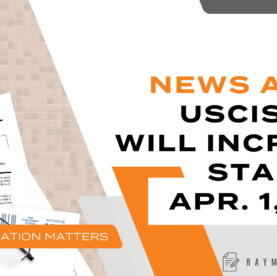Employment-Based Immigration Depends on Your Job
If you are looking to immigrate to the United States for employment purposes, some professions are preferred over others. Often called employment-based preferences, these are the positions for which an employment visa is most likely to get approved. Here is an overview of this hierarchy and how it can work for you.
PRIORITY WORKERS ALWAYS COME FIRST
The U.S. Department of State’s Bureau of Consular Affairs releases a visa bulletin each month. In this document, it explains the percentages of visa categories that are accepted and their order of priority. It also reviews educational requirements and procedural updates.
Content in the bulletin includes employment-based preferences. It starts by discussing the E1 visa, which is always at the top of the list. These workers include people with “extraordinary ability” in the arts, education, sciences, business or athletics. Professional athletes fall under this visa, as do multinational executives and well-known researchers and professors of the Nobel Prize variety. This type of visa, if you qualify, is easy to secure and often immediate.
The second priority, the E2 visa, is for skilled workers, professionals and other workers. This may include very well-educated people who do not quite meet the level of the E1. If you have an advanced degree and show gifted abilities, you can likely qualify for this visa and can secure it quickly.
Skilled workers and professionals who fall under the third preference category, E3, have less experience than the E2 and must secure employer sponsorship. Preferences below this category still have a good chance of being granted a visa, but additional steps including forms and sponsorship will also apply.
EMPLOYER SPONSORSHIP
The clients in these employment-preference visas are frequently employers. Preference visas are often pursued in order to secure the most gifted workers in the world. In professional sports, for example, there is frequently a desire to get a new athlete training with a team as soon as possible, so teams and leagues also pursue legal assistance in immigration matters to make this an easier transition while also following immigration law.
Individuals are also beneficiaries. If you are working for a smaller company that does not have the resources to handle your immigration matters, visiting an attorney with your employment offer and proof of sponsorship is frequently the quickest way to get you into the United States and working sooner.



